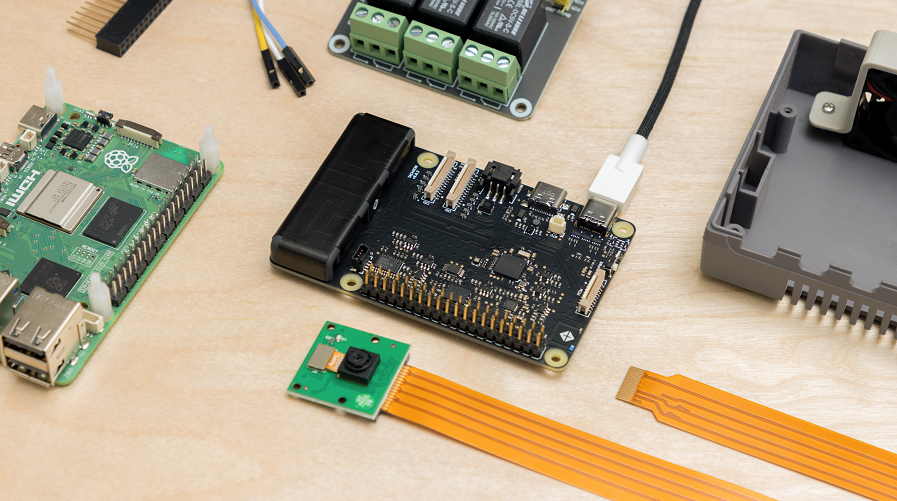 IOT
IOT
 IOT
IOT
 IOT
IOT
Startup Particle Industries Inc. today debuted Tachyon, a single-board computer designed to power connected devices.
Tachyon is positioned as an alternative to the popular Raspberry Pi line of miniature computing modules. Companies and consumers have bought more than 60 million Raspberry Pi devices since the product series launched in 2012. Those modules are used to power agricultural equipment, industrial robots, satellites and a range of other systems.
San Francisco-based Particle is backed by more than $80 million in funding from Qualcomm Inc. and other investors. It operates a cloud platform that companies use to manage their connected device fleets. The platform enables developers to remotely change connected devices’ configuration, issue software updates and troubleshoot technical issues.
Particle also offers a range of complementary products. It provides an operating system that companies can install on their connected gadgets to provide a software foundation for on-device applications. To help customers link their devices to the internet, Particle offers hardware modules that can be used to equip a system with 5G and Wi-Fi connectivity.
Tachyon, the new device that the company debuted today, extends its hardware portfolio into a new market. It’s a so-called single-board computer, a computer implemented on a single circuit board to save space and reduce power usage. Similarly to the competing Raspberry Pi, the Tachyon is about the size of a credit card.
The bulk of the device’s processing power comes from an eight-core central processing unit supplied by Particle investor Qualcomm. The chip’s fastest core can reach speeds of up to 2.7 gigahertz. There are two sets of slower cores that peak at 2.4 gigahertz and 1.9 gigahertz, respectively.
The CPU is supported by 4 gigabytes of RAM and a solid-state drive with 64 gigabytes of space. The SSD is based on UFS flash, a type of flash that is widely used in smartphones and requires less power than the NVMe variety favored by data center operators. Customers that require more capacity can optionally attach an external flash drive via an NVMe-compatible USB-C port integrated into the circuit board.
One of the tasks that Particle promises to ease with Tachyon is running artificial intelligence models at the edge. A manufacturer, for example, could use the device to power a production line monitoring system that leverages computer vision to detect malfunctions. To support such use cases, Particle has equipped Tachyon with a neural processing unit that can perform up to 12 trillion calculations per second.
There’s also an Adreno 643 graphics processing unit from Qualcomm. It’s designed to boost the speed at which the Tachyon can process multimedia files. The device can only ingest such data but also output it to external displays thanks to the built-in USB-C port, which supports the DisplayPort protocol for transferring multimedia content.
Yet another task for which the USB-C port can be used is charging Tachyon-powered systems. Alternatively, customers may order the computer with a built-in battery. That configuration option allows it to be used inside connected devices that don’t operate in the immediate vicinity of a power outlet.
Rounding out the Tachyon’s feature set is a set of built-in antennas. Particle says they allow systems powered by the module to access Wi-Fi and 5G networks. The built-in wireless networking hardware removes the need for developers to add external antennas, which reduces the amount of effort involved in building internet-connected systems.
Tachyon is available starting at $149.
Support our mission to keep content open and free by engaging with theCUBE community. Join theCUBE’s Alumni Trust Network, where technology leaders connect, share intelligence and create opportunities.
Founded by tech visionaries John Furrier and Dave Vellante, SiliconANGLE Media has built a dynamic ecosystem of industry-leading digital media brands that reach 15+ million elite tech professionals. Our new proprietary theCUBE AI Video Cloud is breaking ground in audience interaction, leveraging theCUBEai.com neural network to help technology companies make data-driven decisions and stay at the forefront of industry conversations.